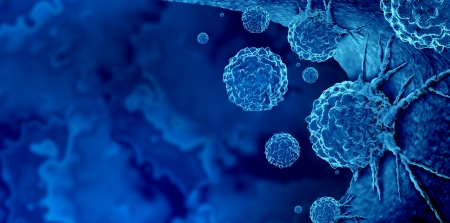Immunotherapy medications for lung cancer have made it to mainstream television advertisements. With our focus on lung cancer this week, it seems like it’s the perfect time to go into detail about immunotherapy and lung cancer.
We at FLASS, want our readers to know at least a little more than the material in the pharmaceutical company’s commercials. Thus, please be aware that this is the first of a two-part series of blogs on immunotherapy for lung cancer patients.
Back to Basics About Immunotherapy

Immunology Drugs Work at the Microscopic Level to Combat Lung Cancer… Which Even Conventional Radiation and Chemotherapy Cannot Do.
Chemotherapy and radiation have long been the only respected recourses of lung cancer patients. And they still have their place in treatment plans.
However, immunotherapy has proven to extend lives. We first reported about these drugs in 2017. And now, we are proud to bring you updates at this time.
Immunotherapy Drugs: How They Extend Lives for Lung Cancer Patients
Thus, let us take a brief and simple look at these therapies and how they work. Then, you will see why FLASS calls immunotherapy the life extender for lung cancer patients.
You probably already know that you have an immune system of cells that fight infection. Put simply, “Immunotherapy drugs help the immune system find and attack any cancer cells that may be evading detection.”
How Do These Drugs Work?

Medical Researchers: Quest For the Ultimate Therapy.
These specialized drugs for lung cancer zoom in on the communication between the body’s immune system cells and the cancer cells.
1. Cancer cells and immune cells communicate through proteins.
2. Therefore, it is logical that some immunotherapy drugs “disrupt the receptors on immune cells…”
3. In turn, this makes the immune cell extra-sensitive to foreign cells, that is, the cancer cells.
4. Since these immune cells are now more sensitive, they are also on alert for the fight they need to make against the cancer cells. They are readied for combat.
5. Other immunotherapy drugs seek to “disrupt the proteins on the cancer cell surface…” Then, this makes it difficult for the cancer cells to hide from your immune system warrior cells.
Your Body Is a Battlefield When You Have Lung
Imagine your body as a battlefield. Your immune system has soldier cells that hunt for infections in your body. “They recognize certain substances as threats and others as safe…”
Additionally, they recognize cells as friends (safe) and foes (unsafe.) This occurs using the language of protein interactions, as noted above.
And therein lies one of the ways cancer can trick your immune system. Read on to see how cancer cells do it.
Deceptive Behavior of Cancer Cells at the Microscopic Level
However, some cancer cells are insidiously clever enemies. Some of them are equipped to “outsmart your immune system…” For example, they employ a protein “on their surface that makes them look safe.”
Immunotherapy drugs allow your immune cells to recognize these sly cancer cells and fight them–even when they are in disguise.
A Lexicon to Help Patients Live Longer

Immunology Joins Forces With Your Immune System to Boost Your Power to Fight Back Against Lung Disease.
To clarify, let’s rephrase this in more medical language. According to the Cancer Center experts, lung cancer immunotherapy (FDA) works by “disrupting the interaction between the PD-L1 protein on cancer cells …” Likewise, these drugs also work on “the PD-1 receptor on immune T-cells.”
Yet a different drug can disrupt the CTLA-4 protein on immune T-cells. With the protein connection broken, T-cells in your immune system can recognize and respond properly to their enemies, the cancer cells.
A Little Terminology and An Important List
First, allow us to introduce you to a type of drug called Checkpoint Inhibitors. These are the drugs mentioned above. They have three purposes, all of which can help patients extend their lives.
- They prevent cancer cells from disguising themselves or hiding from your immune cells.
- Likewise, Checkpoint Inhibitors also help your system identify and fight those enemy cells. At the same time, these checkpoint inhibitors prevent the immune system from attacking the normal cells in the body. To do this, they use the proteins mentioned above.
- Finally, the result of taking Checkpoint Inhibitors is greatly desired. You see, these advanced drugs work with your immune system to either slow or completely stop the growth of tumors.
Pinning Names on The Checkpoint Inhibitors
Drugs that target these checkpoints (called checkpoint inhibitors) can be used to treat some people with non-small cell lung cancer (NSCLC). They are named for the proteins that they work on.
1. PD-1/PD-L1 Inhibitors
You’ll recognize some of these names from the massive television campaigns you might have been seeing. Nivolumab (Opdivo), pembrolizumab (Keytruda), and cemiplimab (Libtayo.)
These immunotherapy drugs target PD-1. And as you might guess, PD-1 is a protein on certain immune cells, the famous T cells.
“By blocking PD-1, these drugs boost the immune response against cancer cells.” As a result, the medication helps shrink tumors or at least slow them down.
2. Atezolizumab (Tecentriq) and durvalumab (Imfinzi)
These two drugs target PD-L1. That is a protein related to PD-1 and we find it on some tumor cells and immune cells.
Therefore, “Blocking this protein can help boost the immune response against cancer cells.” And again, this can “shrink some tumors or slow their growth.”
3. CTLA-4 inhibitor, including Yervoy® (ipilimumab).
You have likely seen advertisements for this highly publicized immunological drug also. “Yervoy boosts your immune response against cancer cells by affecting the CTLA-4 protein on T-cells…”
Put simply, this is the immunotherapy drug that sends the message to T cells that they should fight the cancer cells.
Immunotherapy alone, or in combination with chemotherapy, has clearly extended the lives of many lung cancer patients.
Watching for Impressive Results from the Life Extender, Immunotherapy
In one UCLA study of immunotherapy drugs, scientists announced, “…More than “15 percent of people with advanced non-small cell lung cancer live for at least five years…”
The researchers added, “and 25 percent of patients whose tumor cells had a specific protein lived at least that long.”
However, back at the beginning of the study in 2012, before the use of immunotherapy drugs, the five-year survival rate was much more rare” In fact, they stated that previous to immunotherapy, only 5.5 percent of patients made the average five-year survival rate after diagnosis with non-small cell lung cancer.
More Information Coming from FLASS: from Immunotherapy Drugs for Lung Cancer

It’s a New Dawn! Immunotherapy is Bring Lung Cancer Patients More Days and Nights.
These are not the only immunotherapy drugs FLASS wants you to discover. However, this topic is too large to cover in one blog.
In our next blog, we will introduce you to more options for immunotherapy for patients with lung cancer. Likewise, we will fill you in on the possible side effects of these amazing treatments.
Remember, the American Cancer Society quote. “Before immunotherapy became available, less than 6 percent of patients with metastatic NSCLC lived five years or more, according to the ASCO.”

